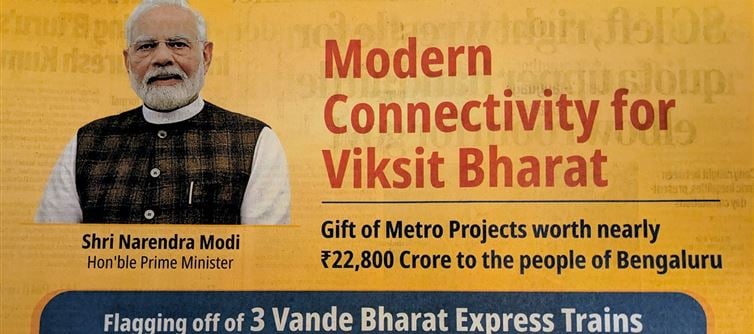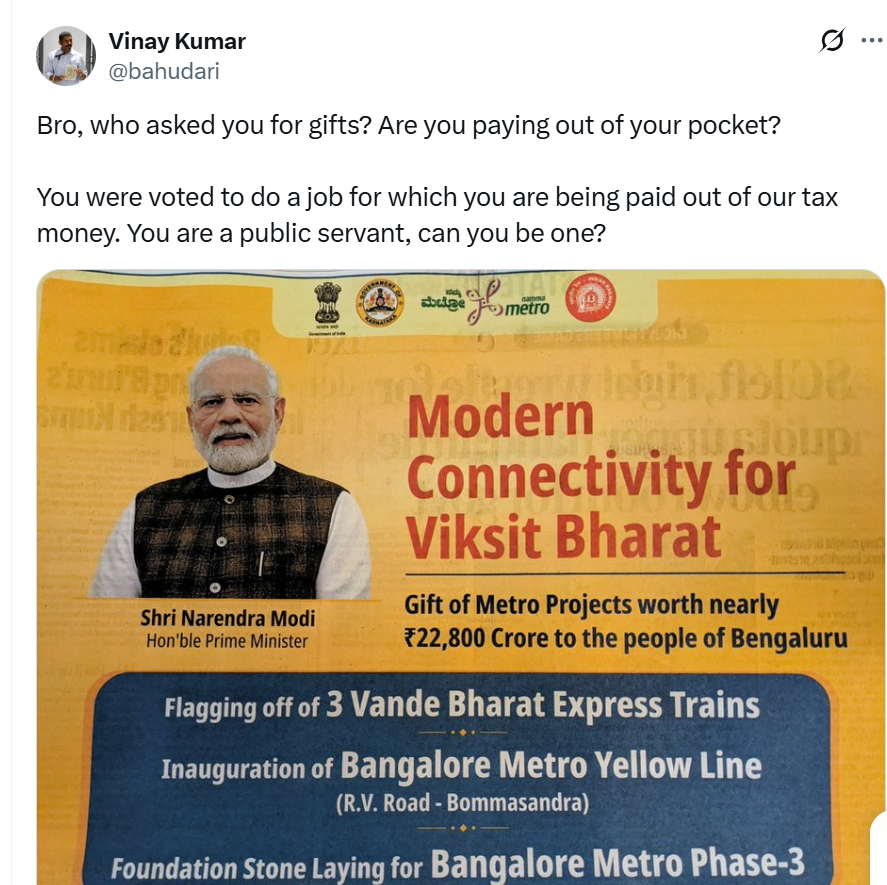
However, the tweet’s accompanying caption, "Bro, who asked you for gifts? Are you paying out of your pocket? You were voted to do a job for which you are being paid out of our tax money. You are a public servant, can you be one?" introduces a critical perspective. Vinay Kumar challenges the framing of these projects as "gifts," arguing that the funds are derived from public taxes, not personal contributions by Modi. This sentiment reflects a broader public discourse about the role of elected officials as public servants rather than benefactors, questioning the narrative of political generosity. The tone suggests frustration with the portrayal of infrastructure development as a favor, rather than a fundamental duty of governance.
 The developments announced during Modi’s visit are poised to transform Bengaluru’s transportation landscape, with the Yellow Line spanning 18.82 km and connecting key areas like R.V. Road and Bommasandra, and the initiation of Metro Phase-3 promising further expansion. The flagging off of three Vande Bharat Express trains also enhances intercity connectivity, aligning with national goals of modernizing rail services. Yet, the public reaction, as hinted in the tweet, indicates a divide—while the projects are celebrated for their economic and logistical benefits, some citizens, like Kumar, demand a shift in rhetoric, urging leaders to focus on accountability and service rather than patronage.
The developments announced during Modi’s visit are poised to transform Bengaluru’s transportation landscape, with the Yellow Line spanning 18.82 km and connecting key areas like R.V. Road and Bommasandra, and the initiation of Metro Phase-3 promising further expansion. The flagging off of three Vande Bharat Express trains also enhances intercity connectivity, aligning with national goals of modernizing rail services. Yet, the public reaction, as hinted in the tweet, indicates a divide—while the projects are celebrated for their economic and logistical benefits, some citizens, like Kumar, demand a shift in rhetoric, urging leaders to focus on accountability and service rather than patronage.



 click and follow Indiaherald WhatsApp channel
click and follow Indiaherald WhatsApp channel